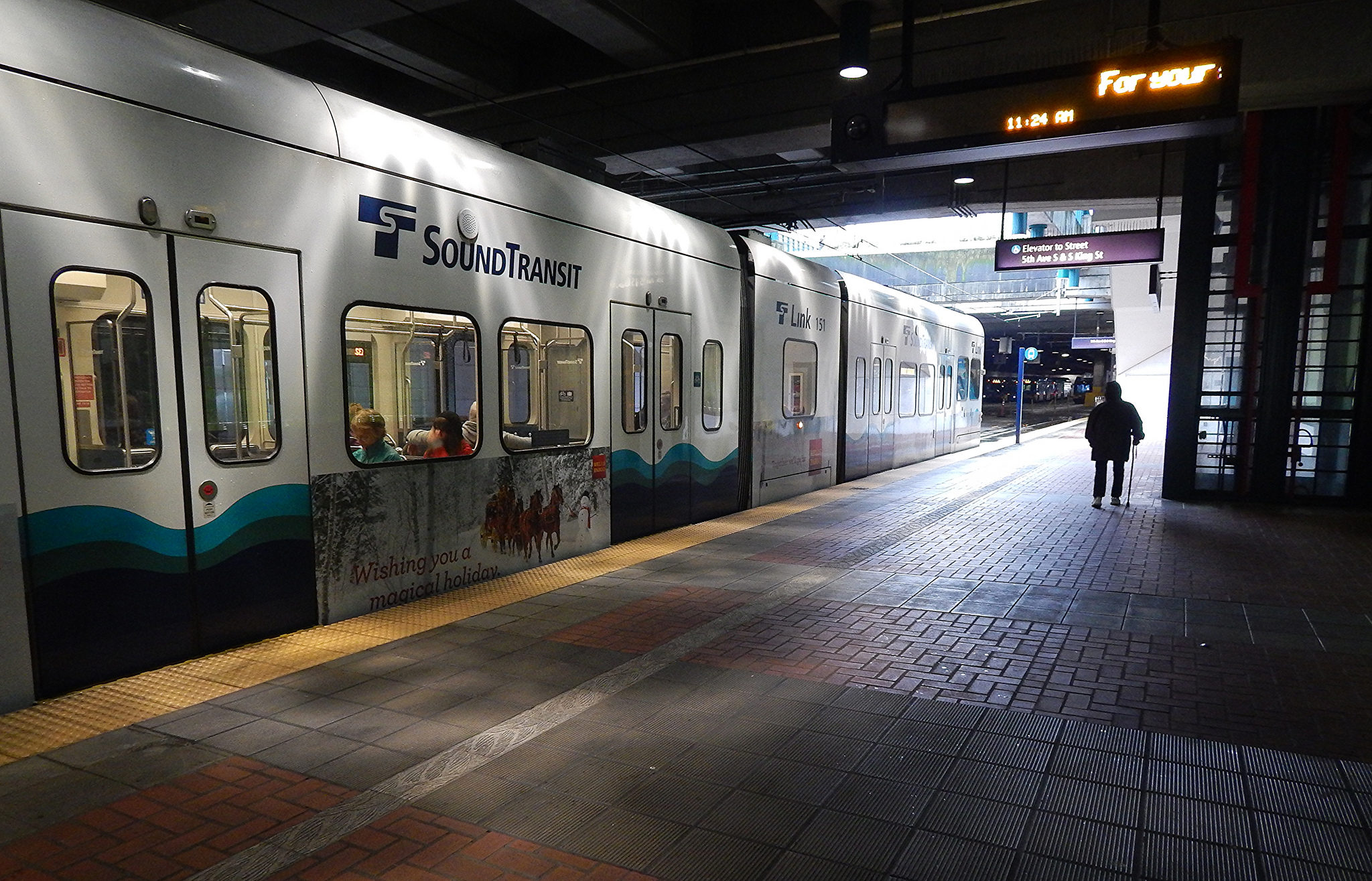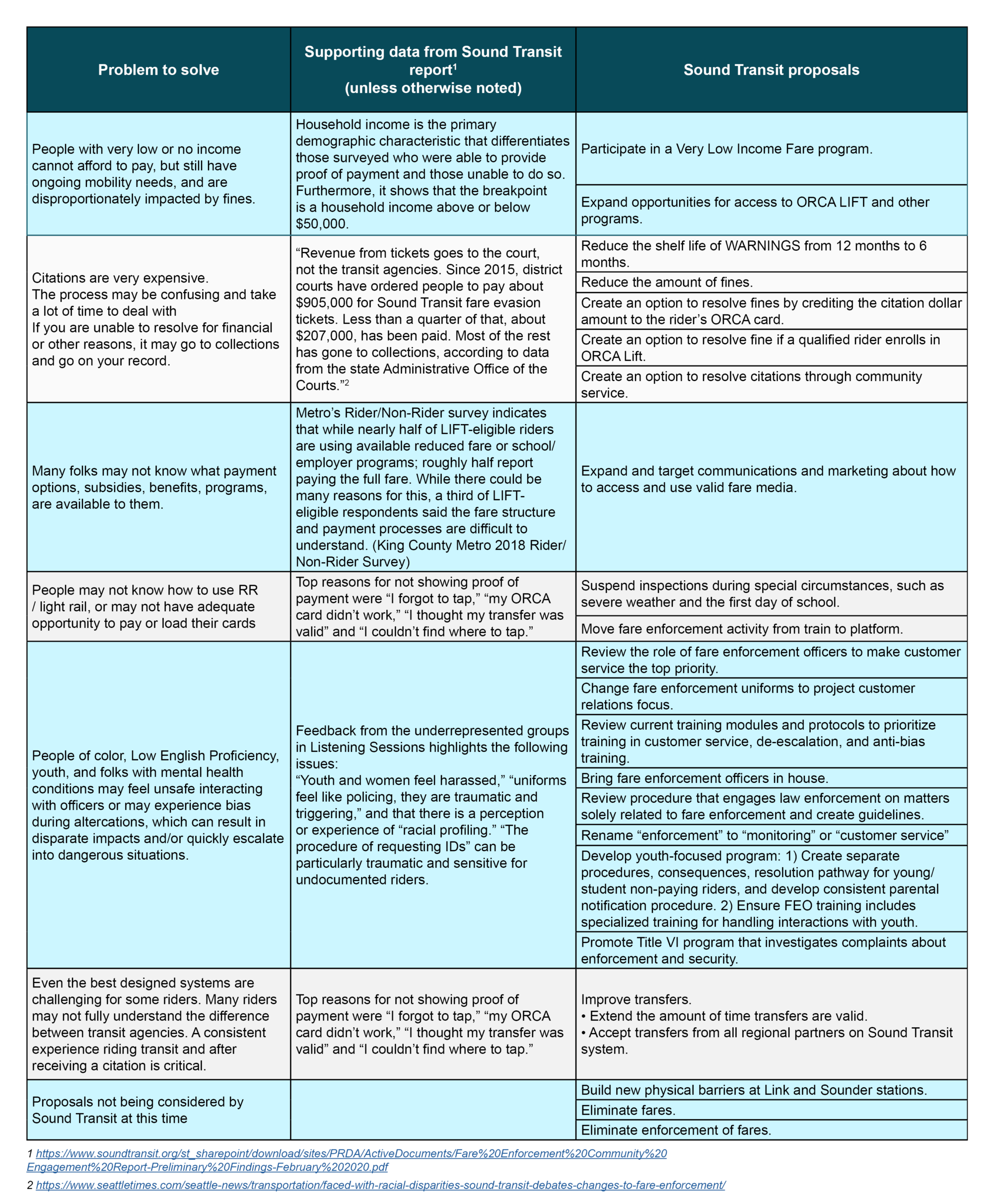
About one year after King County Metro launched changes to its enforcement policies and procedures – notably reducing fines, providing alternative pathways for resolution, taking citations out of the court system, and most importantly, emphasizing connecting people with access to reduced fare programs – Sound Transit is considering similar changes that could help address issues of inequitable racial outcomes (While 9% of people who ride light rail and Sounder commuter trains are black, 22% of riders caught up in the fare-enforcement system over the last four years were black, with the disparity growing as the punishment gets more severe. In the last four years, about half the riders who faced a misdemeanor charge for failing to pay a fare were black.), inability to pay fare or citations, confusion on how and where to pay, and dissatisfaction with the “security” focus of enforcement.
In the first week of February, Sound Transit board members heard the results of months of online and onboard rider surveys, as well as several community listening sessions, related to their Fare Enforcement Program.
We are grateful for the leadership of Sound Transit board members such as King County Councilmembers Joe McDermott, Claudia Balducci, and others who pushed the agency to use an equity lens to review the current program, and are excited that the agency is finally moving towards adopting these policy changes. As the board members review and take action on the policy proposals, we urge them again to focus on the ultimate goal of increasing access to public transportation for all, including underserved communities who currently suffer disparate impacts from enforcement. Although the Board will weigh the benefits of making these changes against possible impacts to farebox recovery, it is important to remember that the link between enforcement and fare evasion remains unclear. The King County Auditor writes, “research has not found a correlation between fare enforcement and fare evasion: systems that have a lot of fare enforcement report fare evasion rates that are similar to those that have more limited coverage. Research has also shown that there are certain transit riders that will evade fares no matter what the consequences. This means that no matter how many resources are deployed or fares checked, the fare evasion rate will never be zero.”
Additionally, in reviewing individual proposed changes, we hope the board considers consistency across transit agencies, makes a commitment to an iterative process of program improvement, prioritizes comments from communities of color and low-income community listening sessions, and identifies funds in the budget to ensure the ability to implement these changes. Because Caucasian/White respondents were over-represented in the online survey, it’s even more important for Sound Transit board members to center the community listening sessions, which represent communities of color and low-income communities that are disproportionately impacted by enforcement.
Below we have identified several problems we are trying to solve (raised through feedback to Sound Transit, our partners, and our constituents), supporting data, and proposals put forth from Sound Transit that could address them.
What do you think? Sound Transit is hosting an evening public hearing on February 19, 6-8 pm at El Centro de la Raza, for those members of the general public that would like to weigh in.





